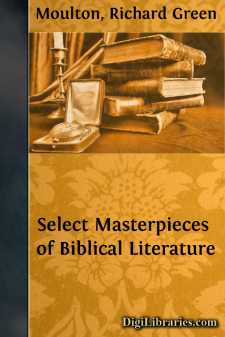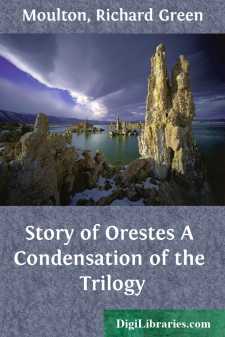Categories
- Antiques & Collectibles 13
- Architecture 36
- Art 48
- Bibles 22
- Biography & Autobiography 813
- Body, Mind & Spirit 142
- Business & Economics 28
- Children's Books 15
- Children's Fiction 12
- Computers 4
- Cooking 94
- Crafts & Hobbies 4
- Drama 346
- Education 46
- Family & Relationships 57
- Fiction 11828
- Games 19
- Gardening 17
- Health & Fitness 34
- History 1377
- House & Home 1
- Humor 147
- Juvenile Fiction 1873
- Juvenile Nonfiction 202
- Language Arts & Disciplines 88
- Law 16
- Literary Collections 686
- Literary Criticism 179
- Mathematics 13
- Medical 41
- Music 40
- Nature 179
- Non-Classifiable 1768
- Performing Arts 7
- Periodicals 1453
- Philosophy 64
- Photography 2
- Poetry 896
- Political Science 203
- Psychology 42
- Reference 154
- Religion 513
- Science 126
- Self-Help 84
- Social Science 81
- Sports & Recreation 34
- Study Aids 3
- Technology & Engineering 59
- Transportation 23
- Travel 463
- True Crime 29
Select Masterpieces of Biblical Literature
Description:
Excerpt
Introduction
That which we call 'The Bible' has the outward appearance of a book: in reality it is—what the word 'bible' implies in the original Greek—a whole library. More than fifty books, the production of a large number of different authors, representing periods of time extending over many centuries, are all comprehended between the covers of a single volume. There is no greater monument of the power of printing to diffuse thought than this fact, that the whole classic literature of one of the world's greatest peoples can be carried about in the hand or the pocket.
But there is another side to the matter. A high price has been paid for this feat of manufacturing a portable literature: no less a price than the effacement from the books of the Bible of their whole literary structure. Where the literature is dramatic, there are (except in one book) no names of speakers nor divisions of speeches; there are no titles to essays or poems, nor anything to mark where one poem or discourse ends and another begins; not only is there nothing to reflect finer rhythmic distinctions in poetry, but (in King James's version) there is not even a distinction made between poetry and prose. It is as if the whole were printed 'solid,' like a newspaper without the newspaper headings. The most familiar English literature treated in this fashion would lose a great part of its literary interest; the writings of the Hebrews suffer still more through our unfamiliarity with many of the literary forms in which they are cast. Even this statement does not fully represent the injury done to the literature of the Bible by the traditional shape in which it is presented to us. Between the Biblical writers and our own times have intervened ages in which all interest in literary beauty was lost, and philosophic activity took the form of protracted discussions of brief sayings or 'texts.' Accordingly this solidified matter of Hebrew literature has been divided up into single sentences or 'verses,' numbered mechanically one, two, three, etc., and thus the original literary form has still further been obscured. It is not surprising that to most readers the Bible has become, not a literature, but simply a storehouse of pious 'texts.'
If the sacred Scriptures then are to be appreciated as literature, it is necessary to restore their literary form and structure. To do this, with all the assistance that the modern printed page gives to the reader, is the aim of the 'Modern Reader's Bible.' The present volume is intended as an introduction to the series, and, it is hoped, to the literary study of the Bible in general, by Select Masterpieces, illustrating the different types of literature represented in Scripture.
It is natural to enquire, What are the leading literary forms under which the sacred writings may be classified?
A large proportion of the Bible is History: the History of the People of Israel as presented by themselves. How Israel is chosen from all the nations to be the special people of Jehovah; how the invisible Jehovah is at first their only ruler; how gradually the spirit of assimilation to surrounding nations leads to a demand for visible kings....



